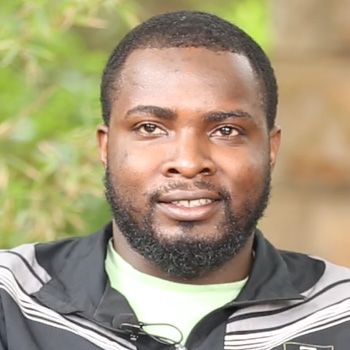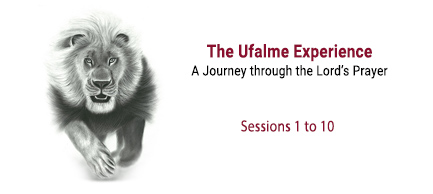Back to series
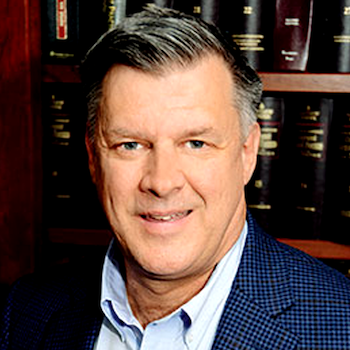


Read and reflect on the following article by Rev. Dr. Joel Woodruff.
(Download this article as a PDF).
A Lesson from the Greatest
What if the greatest footballer in the world offered to teach you his best moves for scoring goals? Or your favorite recording artist wanted to share her tips with you on being a lead vocalist? Or a respected and successful CEO invited you to be his junior partner in business? Wouldn’t you jump at the opportunity to learn from the best?
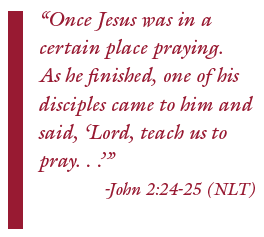 Jesus’ disciples were devout Jews who grew up praying traditional religious prayers and reading the Hebrew Scriptures. Yet when they realized that Jesus was unlike any other teacher and was the godliest man they had ever met, they made one of the smartest
Jesus’ disciples were devout Jews who grew up praying traditional religious prayers and reading the Hebrew Scriptures. Yet when they realized that Jesus was unlike any other teacher and was the godliest man they had ever met, they made one of the smartest
moves of their lives. They asked Jesus to teach them how to pray. The good news for us is that Jesus’ response to their important question on prayer has been passed down over the past 2,000 years so that we too can learn from the greatest person to ever live!
The Lord’s Prayer, also called the “Our Father,” or The Disciples Prayer by some since it was given to Jesus’ disciples to pray, can be found in Matthew 6:9-13 and Luke 11:2-4.
A Revolutionary Prayer
This prayer which begins with the words, “Our Father, who art in heaven,” is prayed by Christians all over the world. Yet sometimes our familiarity with the words of the prayer can lead us to take the words for granted or repeat them mindlessly. This is a far cry from the way Jesus intended this prayer to be used.
When the disciples first heard Jesus’ teaching through the Lord’s Prayer, they would have been shocked by the revolutionary idea that the Holy, All-powerful, All-knowing, and Ever-present God of the Universe could be addressed informally as “Abba,” "Father", “Papa” or “Daddy.” The implication that God wants an intimate relationship with us as a father to his children, was and still is a radical idea to most people on the planet. Yet, through a study of the Lord’s Prayer, we will discover that God wants to include us in His family business, the redemption and restoration of individuals like you, me and others throughout the world.
The Seven Petitions
Using a rabbinic teaching technique, Jesus thoughtfully designed the Lord’s Prayer to be an outline for prayer consisting of seven petitions which if followed can properly align our lives with God’s priorities and purposes. When a person commits these seven petitions to memory, they can be taught easily to others and practiced by taking time to reflect, meditate upon and pray through each area of the prayer as it pertains to an individual’s life.
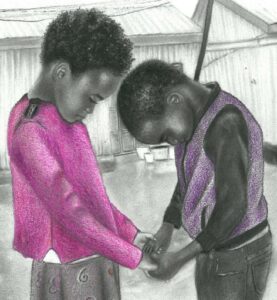 The prayer begins as we call upon God with confidence as our “Daddy” who is in heaven. This is followed by the seven petitions which can be divided by the words “your” and “our”. The first three petitions focus our attention upward toward God in worship. We praise His character, “Hallowed be your name,” acknowledge His position as King, “your kingdom come,” and align ourselves with His purpose, “your will be done on earth as it is in heaven.”
The prayer begins as we call upon God with confidence as our “Daddy” who is in heaven. This is followed by the seven petitions which can be divided by the words “your” and “our”. The first three petitions focus our attention upward toward God in worship. We praise His character, “Hallowed be your name,” acknowledge His position as King, “your kingdom come,” and align ourselves with His purpose, “your will be done on earth as it is in heaven.”
It’s easy in this challenging world to be consumed by our own fears, wants, and concerns. But by beginning our prayers with praise and worship we can refocus, get our Father’s perspective and find hope and direction in this broken world. Everything else falls into place when we put God first. As Jesus follows up on His teaching on prayer in Matthew 6:33, “But seek first his kingdom and his righteousness, and all these things will be given to you as well.”
The next four petitions move to addressing “our” needs which are both physical and spiritual as we ask for God’s provision, “give us this day our daily bread”; God’s pardon, "forgive us our sins as we forgive those who have sinned against us”; God’s prudence or wisdom, “lead us not into temptation"; and God’s protection, “but deliver us from the evil one.”
When the Lord’s prayer is prayed corporately in churches, some end the prayer with a song of praise that the kingdom, power and glory belong to God for ever and ever, which is an appropriate way to end a time of prayer.
As you spend this season exploring the depth and riches of Jesus’ teaching on prayer as found in the Lord’s Prayer, may you commit it to memory anew. I also encourage you to put it into practice in your personal prayer life and teach it to others so that they too might find the peace and guidance that comes from God when we put Him first and align ourselves with His redemptive plan for the world.

Joel Woodruff
President, C.S. Lewis InstituteJoel Woodruff, President, C.S. Lewis Institute, has worked in higher education, “tent-making,” nonprofit administration, and pastoral ministries in Alaska, Israel, Hungary, France, and Northern Virginia. He served as Dean of Students, Chaplain, and Professor of Bible & Theology at European Bible Institute, where he helped train Europeans both for professional ministry and to be Christian leaders in the marketplace. Prior to joining the Institute, he was on the leadership team of Oakwood Services International, a nonprofit educational and humanitarian organization. He is a graduate of Wheaton College, earned his M.Div. from Gordon-Conwell Theological Seminary, and has a doctorate in Organizational Leadership from Nova Southeastern University. As a Parish-Pulpit Fellow, he studied Biblical Backgrounds & Archaeology in Israel for a year.

 COPYRIGHT: This publication is published by C.S. Lewis Institute; 8001 Braddock Road, Suite 301; Springfield, VA 22151. Portions of the publication may be reproduced for noncommercial, local church or ministry use without prior permission. Electronic copies of the PDF files may be duplicated and transmitted via e-mail for personal and church use. Articles may not be modified without prior written permission of the Institute. For questions, contact the Institute: 703.914.5602 or email us.
COPYRIGHT: This publication is published by C.S. Lewis Institute; 8001 Braddock Road, Suite 301; Springfield, VA 22151. Portions of the publication may be reproduced for noncommercial, local church or ministry use without prior permission. Electronic copies of the PDF files may be duplicated and transmitted via e-mail for personal and church use. Articles may not be modified without prior written permission of the Institute. For questions, contact the Institute: 703.914.5602 or email us.
Speakers

Joel Woodruff
President, C.S. Lewis Institute
Team Members

Joel Woodruff
President, C.S. Lewis InstituteJoel Woodruff, President, C.S. Lewis Institute, has worked in higher education, “tent-making,” nonprofit administration, and pastoral ministries in Alaska, Israel, Hungary, France, and Northern Virginia. He served as Dean of Students, Chaplain, and Professor of Bible & Theology at European Bible Institute, where he helped train Europeans both for professional ministry and to be Christian leaders in the marketplace. Prior to joining the Institute, he was on the leadership team of Oakwood Services International, a nonprofit educational and humanitarian organization. He is a graduate of Wheaton College, earned his M.Div. from Gordon-Conwell Theological Seminary, and has a doctorate in Organizational Leadership from Nova Southeastern University. As a Parish-Pulpit Fellow, he studied Biblical Backgrounds & Archaeology in Israel for a year.



